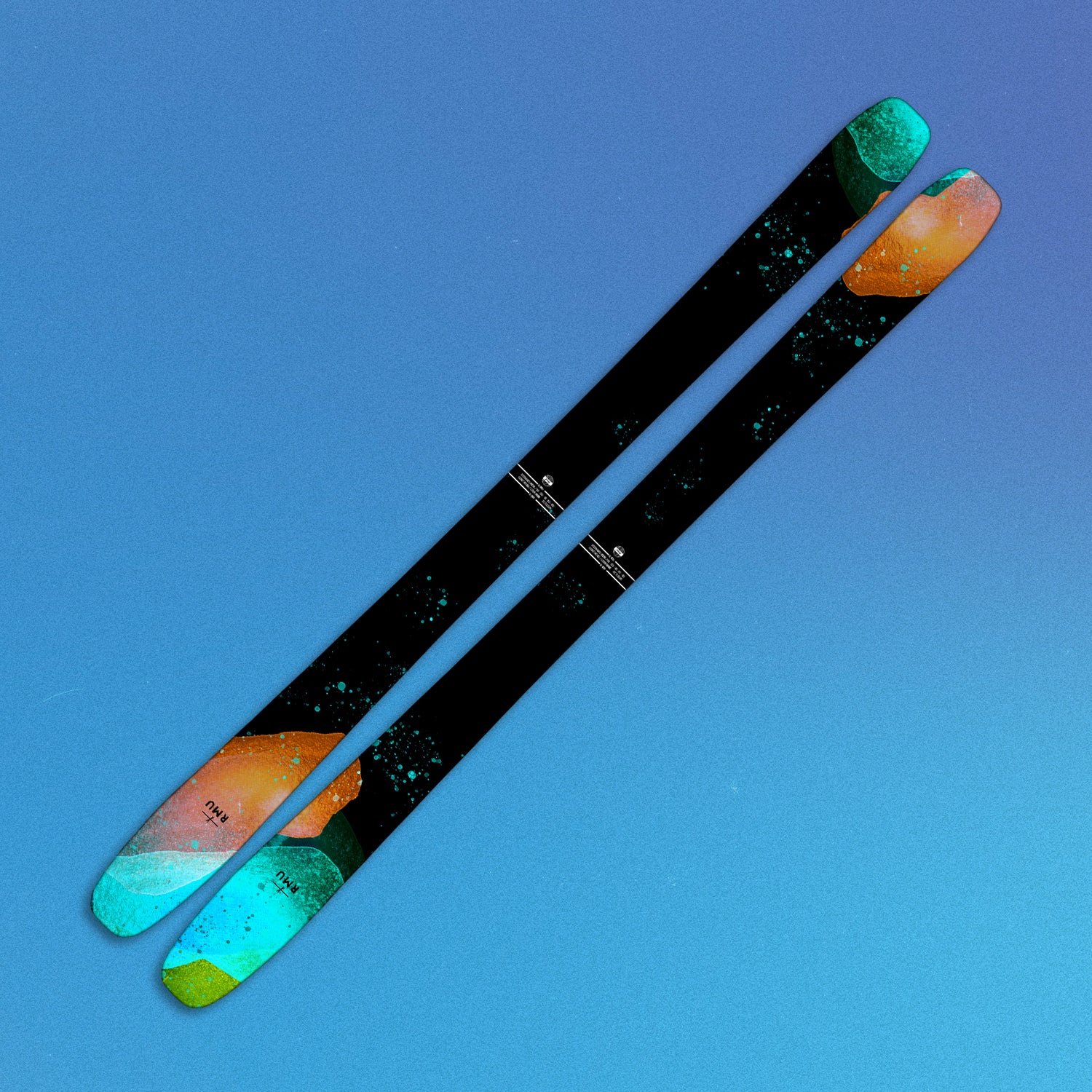This article was first published by .
The Scores (out of 10)
- Overall Score: 6.8/10
- Rank: #8
- Versatility: 6.5
- Crud Performance: 6.83
- Flotation: 7.5
- Playfulness: 7.67
- Responsiveness: 6.67
- Quickness: 6.67
- Hard-Snow Integrity: 4.67
- Stability at Speed: 6.17
- Forgiveness: 6.5
The Specs
- Price: $799
- Lengths: 176, 184, 192
- Dimensions: 140-106-126
- Radius: 20
- Level: Intermediate, Advanced
In a Nutshell
- Pros: Flotation (#6), Playfulness (#4)
- Cons: Hard-Snow Integrity (#20), Stability at Speed (#15)
RMU might not be the most familiar ski brand to those outside of Colorado, so a quick primer: RMU is an employee (skier) owned brand that received its name, Rocky Mountain Underground, “literally because they were pressing skis underground in the Rocky Mountains.” RMU has been building the Apostle line for ten years, and this season the Apostle 106, now in its third iteration, will come in three different construction offerings: wood (what we tested), metal (Apostle 106 Pro), and carbon (Apostle 106 Tour).
What stood out about this ski is how user-friendly it is. We tested the Apostle 106 for the first time during our gear test in Sun Valley and found it to be an approachable, intuitive, and fun all-mountain ripper with an affinity for crud and soft snow. Tester Tommy Flitton, who coaches freeski teams at Alta and Snowbird, felt that “anyone can jump on it and have fun” thanks to its easy-to-find sweet spot and relaxed personality.
In this season’s model, RMU moved to a directional blended radius that makes the new version more directional while also increasing playfulness. Testers noted that the Apostle 106 has a knack for quickly and easily changing turn shape in all conditions, though it most impressed them with its ability to stay above the fray in crud and soft snow. It earned its highest marks in Flotation and Crud Performance as a result.
Read more: Learn How the RMU Apostle 106 Stacked Up Against the Competition
On firmer snow, the Apostle 106 didn’t have the same success. Here, testers felt the ski could be unstable and chattery at speed. The ski also wasn’t built for steep, technical skiing. In this type of terrain, the ski’s dampness underfoot makes it less responsive, which becomes problematic if you have to execute a consequential turn sequence through tight terrain.
Those attributes might exclude the RMU from consideration for the most aggressive skiers looking to push their limits, but for most recreational resort skiers, the Apostle 106 offers a playful all-mountain option. Less aggressive skiers will find the Apostle 106’s flex pattern easy to engage and poppy enough to hit jumps on the side of the trail or bound through powder and variable snow off-piste. The 106 mm waist allows plenty of flotation for most skiers looking to explore the backside of the resort, and what makes this ski particularly attractive for skiers who typically avoid fresh snow is that you don’t even have to be a skilled powder skier to surf these boards. “This is a ski for intermediate to advanced skiers who want to trust that their ski is going to do right by them,” says Park City-based tester Courtney Harkins.
That makes the Apostle 106 unique: It fills a gap in the market as a more approachable wide all-mountain ski. Most any skier can grab the Apostle 106, go out on the hill in any condition, and start exploring all over the mountain.
A self-proclaimed gear nerd when it comes to skis and mountain bikes, grew up skiing in Northern California, spending the majority of his time getting loose and sendy in terrain parks. He now lives in Colorado and calls Copper Mountain his home hill. Though he still gravitates towards playful and wide all-mountain skis, he’s developed a more open mind when it comes to skis since joining SKI’s official gear test crew five seasons ago. These days, you’ll find him ripping around Copper on his trusty Nordica Enforcer 100s.


